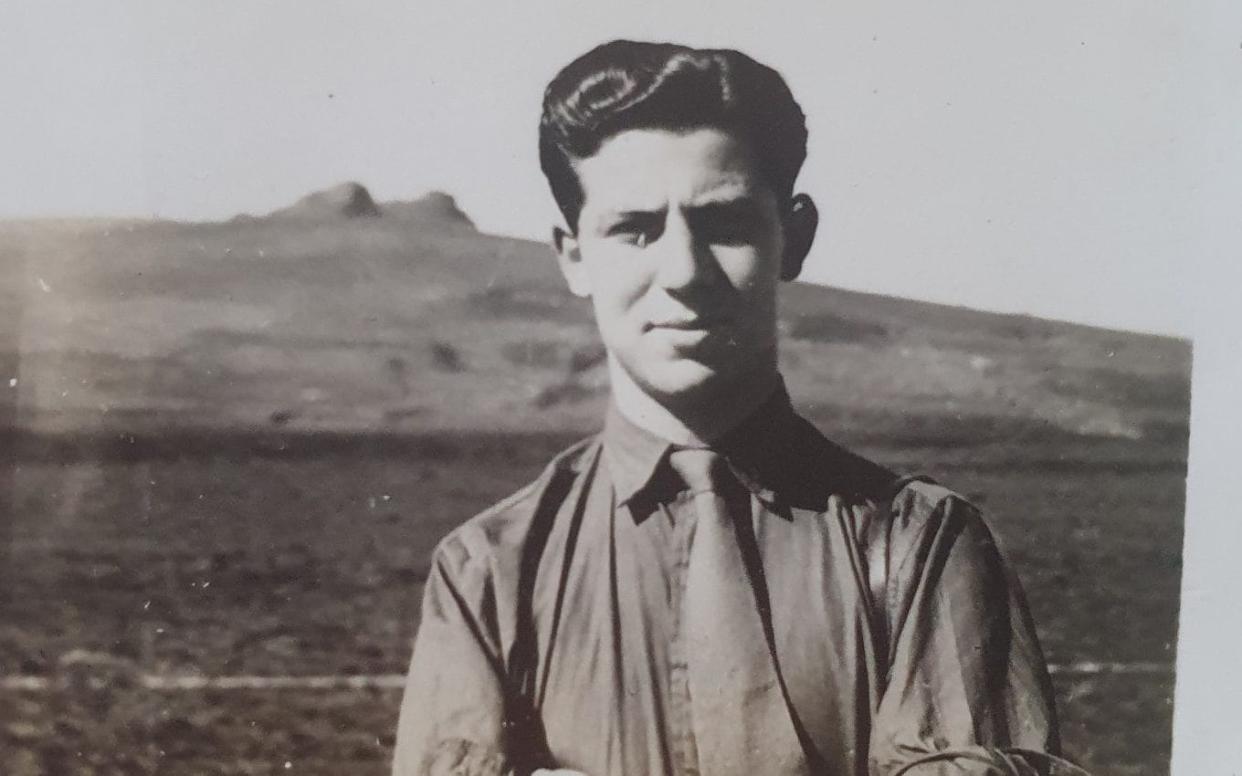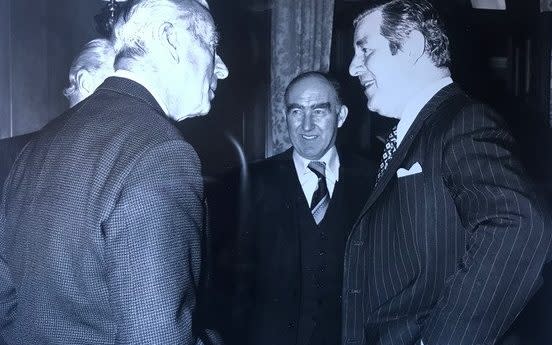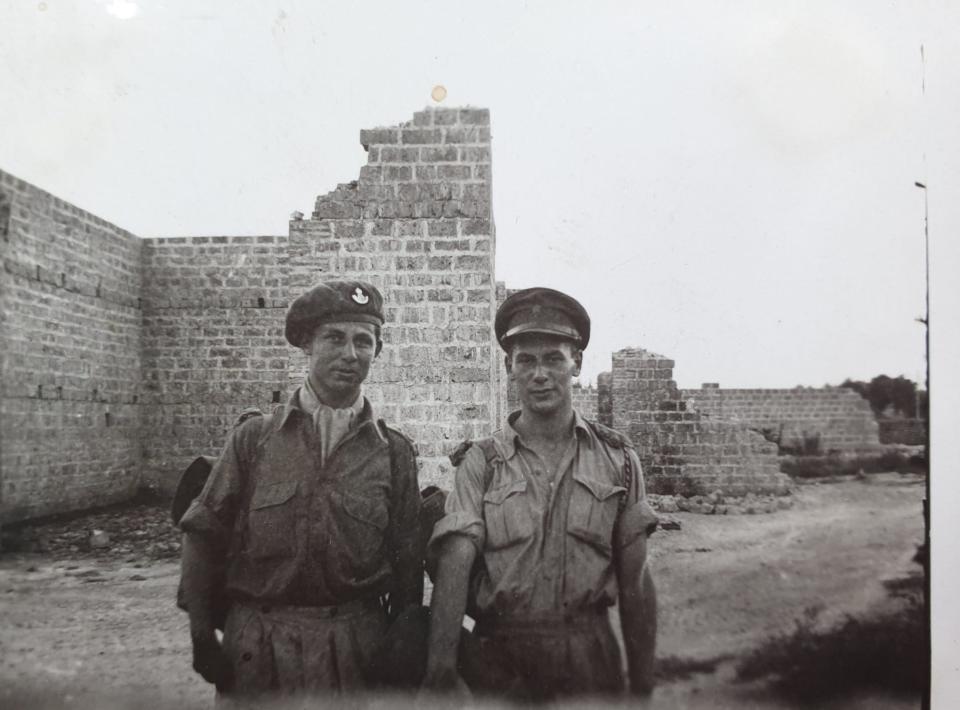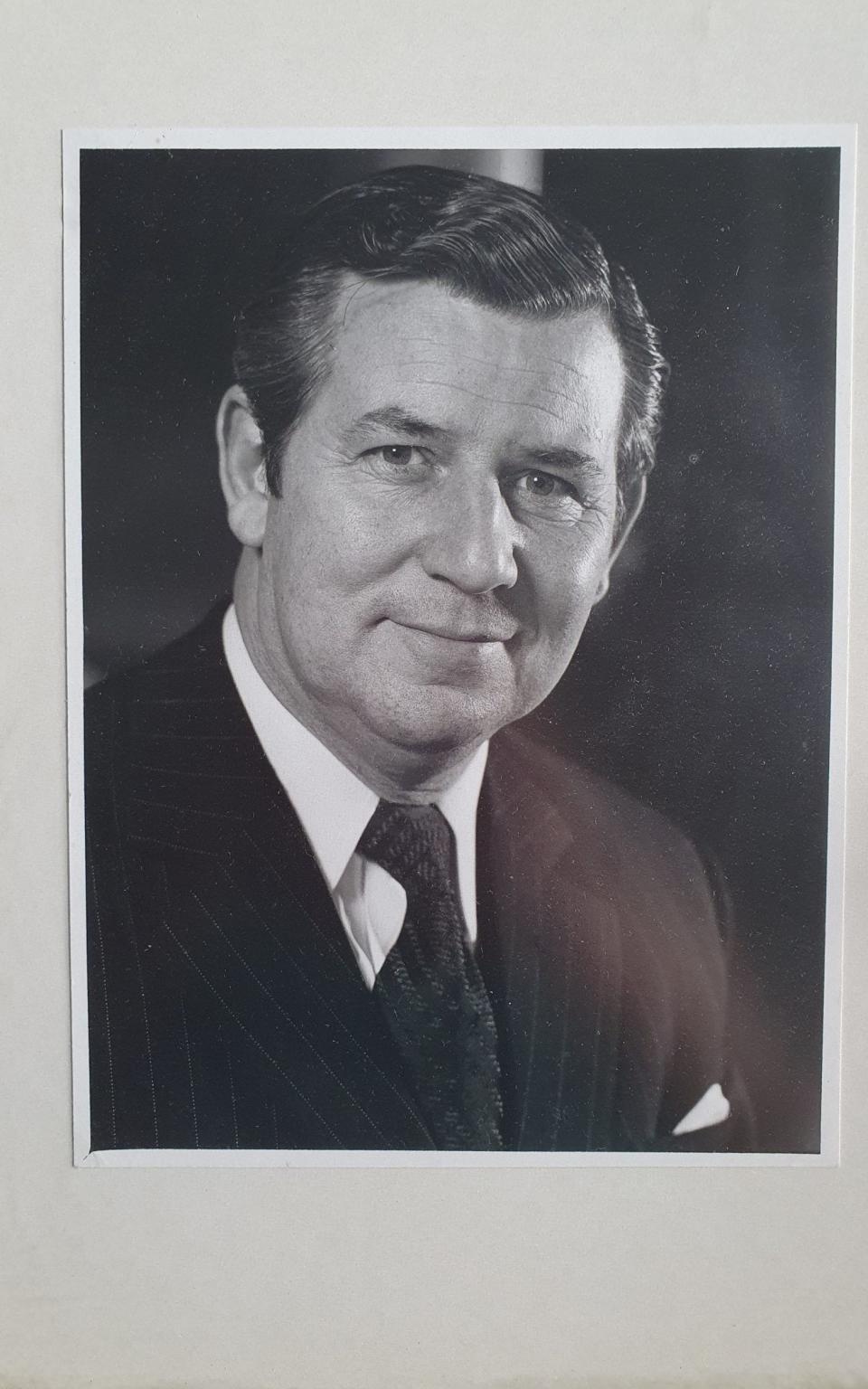Russell Evans, led his company through a hail of bullets during the Italian campaign and rose to the top at Rank – obituary

Russell Evans, who has died aged 98, was awarded an MC while serving in Italy with 1st Battalion The Durham Light Infantry (1DLI); he subsequently became managing director and then executive chairman of the Rank Organisation.
On December 13 1944, 1DLI crossed the River Lamone, near Quartolo, south-west of Faenza. The following night, it attacked across a valley and over a tributary of the River Senio. Evans’s carrier platoon, under the command of “A” Company, was operating dismounted.
During an attack, they were sniped and mortared at close range throughout the day and Evans’s determination and leadership were largely responsible for the fact that they were able to hold on.
On the night of December 27, the officer commanding “B” Company and a subaltern were wounded in an exposed position near Tebano, on the River Senio. Evans took over a badly shaken company, rallied them, and they held the position until they were relieved four days later.
Having reformed a rifle company, on April 18 1945 he led his men against a strong German position north of Imola. They took 20 prisoners and killed 10 of the enemy for the loss of one rifleman. The citation for the award to Evans of an MC paid tribute to his courage and inspiring leadership over many months.

Russell Wilmot Evans was born on November 4 1922 in Birmingham and educated at King Edward’s School. He played cricket from an early age and also represented his school at rugby ,as well as playing the cello in the school orchestra.
He left school aged 16, but he was too young to go on to Oxford and was accepted by the University of Birmingham where he read Law. In 1942 he was commissioned into the DLI and was posted to the 1st Bn.
Evans served in Egypt before his unit deployed to Italy. At one stage in the Italian campaign the life expectancy of an infantry platoon commander in the front line was reckoned at about three weeks. He recalled crossing an iron bridge and seeing the bullets ricocheting off the girders, but after being under heavy shelling for days he and his men became almost nonchalant about small-arms fire.
Leading his unit, he could often hear and feel the turbulence in the air as the bullets passed him. The closest he came to being wounded was when one clipped his ear.
On a separate occasion, his company was in a valley with virtually no cover and pinned down by fire from a machine gun post on the ridge above. Knocking out that post looked to him like a suicide mission so he asked for just one volunteer to go with him.

That night, he and his sergeant crept up the hill until they reached a position directly under the post. Lying on their backs, they lobbed grenades backwards over their heads and put the post out of action.
He was always anxious when his younger brother, Lloyd, was in action. Lloyd was also serving in Italy with the DLI. Russell recounted how the stretcher-bearers brought a badly wounded man back from the front. As they passed him, one of them said: “We think your brother will survive, sir.”
In hospital, after he had regained some strength, Lloyd discovered that the German who had shot him was also being treated there. He got out of bed, found the man and shook his hand. Lloyd Evans lived to an old age, but with the loss of one eye: he wore a black patch.
After the war, Russell Evans was posted on secondment to the King’s African Rifles in Kenya. Given his training in law, he was asked to assist at the Nuremberg Trials before he was demobilised.
Having qualified as a solicitor in 1949, he joined Harry Ferguson, manufacturers of agricultural machinery, two years later. He was involved in the company’s merger with Massey-Harris and resigned in 1962.

In 1967 he moved to the Rank Organisation as assistant company secretary and subsequently became company secretary for the whole of the group. He joined the board in 1972, serving as managing director from 1975 to 1982 and was executive chairman for a further year. Declining revenues from films led to joint ventures and acquisitions in a wide range of fields ranging from Xerox photo-copying equipment to motorway services.
Pamela Hayward, who later became his wife, worked for the Rank organisation before her marriage. She was the secretary to Sir John Davis, the managing director, and subsequently, to Lord Rank, the chairman.
She and Russell Evans met in the 1950s. When she was asked if her husband was in any way romantic, she said that he had proposed to her outside Battersea Power Station, a building then regarded by many as a monstrosity. He had originally intended to propose at dinner in the West End, but suddenly stopped the car, saying: “I cannot put it off any longer!”
A natural leader, but modest and unassuming, one of Evans’s first actions on becoming managing director was to cancel the order for the Rolls-Royce motor car which traditionally came with the job. Every year, he travelled the world visiting Rank’s overseas subsidiaries, usually staying in one of the first-rate hotels which belonged to the group.
He held other directorships, among them at Rank Xerox, Fuji Xerox, Southern Television and Eagle Star Holdings. From 1975 to 1983, he was chairman of Butlin’s.
In 1954 he had become a member of the Roehampton Club and four years later he and his partner were the first winners of the Mens’ Open Doubles Competition. He played in tennis tournaments to a high standard for many years, and this included playing in many tournaments by the sea against top-class competition around the time of the Wimbledon Championships. He took up golf later on, and enjoyed a weekly round until he was well into his eighties.
Evans was captain of tennis and squash at Roehampton Club and a squash champion and tennis finalist there. After some years as director, his organisational skills led to him taking a role in the general running of the club.
He was president for 30 years from 1991 until the end of his life and played a leading part in converting the club from being a privately owned concern to a member’s club.
Russell Evans married, in 1956, Pamela Hayward. She predeceased him and he is survived by their two sons and a daughter.
Russell Evans, born November 4 1922, died July 21 2021

 Yahoo News
Yahoo News 
